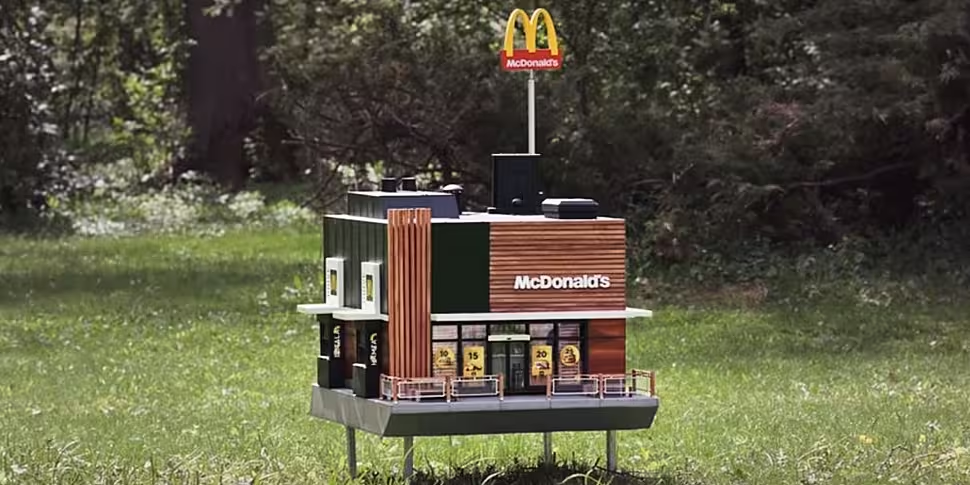The world's smallest McDonald's restaurant has opened in Sweden.
The 'McHive' can fit thousands of customers - because they are bees.
The miniaturised model was created as part of the company's sustainability work.
The idea was envisioned as some of McDonald's restaurants in Sweden do actually have beehives on their rooftops.
The initiative started out locally but is now growing.
More franchisees around the country are joining the cause - and have also started replacing the grass around their restaurants with flowers and plants that are important for the well-being of wild bees.
To celebrate the initiative, the company has created a fully functioning beehive.
A video released by the firm shows a team painstakingly cutting, measuring and gluing the model together.
It even comes complete with the trademark 'M' golden arches and posters in the windows.
Bees are among the only insects in the world that produce food people can eat, and they pollinate as many as 170,000 species of plants.
To make 1kg of honey, a bee must visit four million flowers and fly four times the distance around the world.
According to FAO, 75% of the world's food crops depend at least in part on pollination by insects and other animals - the reason why bees are considered the invisible helpers of farmers across the globe.
Agricultural products that require pollination - like coffee, chocolate, almonds and cocoa - are also an important source of jobs and income.
The United Nations has said: "Bees and other pollinator populations have significantly decreased, and some bees and butterflies are under threat.
"Some of the reasons are pests, use of pesticides and other non-sustainable agricultural practices, pollution and loss of habitat.
"Much of this can be traced to human activity."
The European Union recently banned the use of bee-harming pesticides as a measure to protect bees and other insects vital to crop production.









